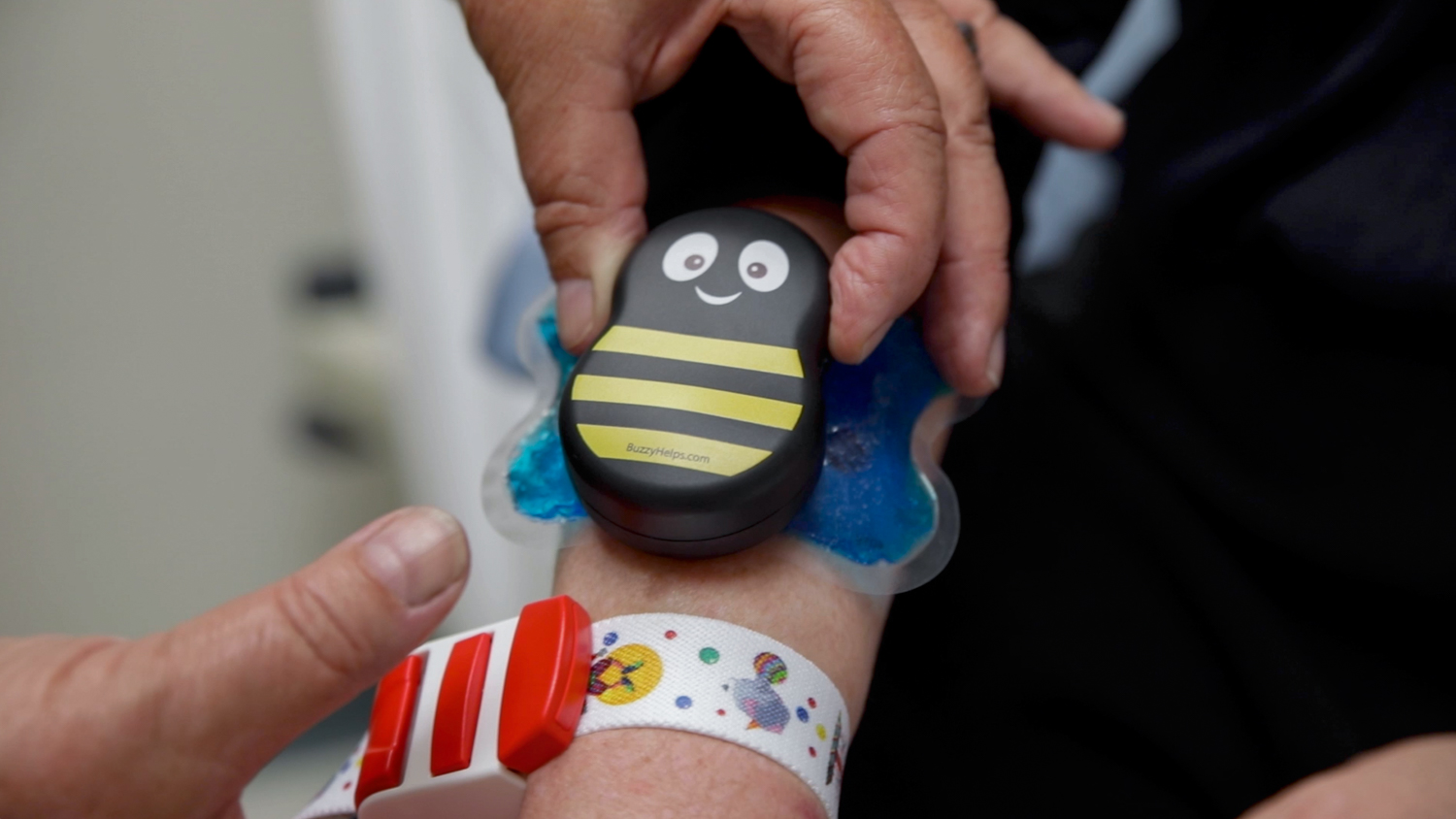Better outcomes for tamariki with rheumatic fever thanks to Mercury and its wonderful customers
Lavenita was eight years old when she was diagnosed with rheumatic fever.
Her journey began when she came home from school one day complaining of a sore foot which she was struggling to stand on. At first her parents thought she must have fallen and hurt herself while playing. And although they couldn’t see anything visibly wrong, when she woke up the next day still with a sore foot, but now also drowsy and feverish, they decided a
visit to the doctor was in order.
The visit quickly turned into a trip to Starship after Lavenita’s doctor recognised her condition could be something more serious.
Soon after, the family learnt that their little girl’s symptoms were the result of rheumatic fever and Lavenita’s month-long hospital stay began.
“Starship took it really seriously,” her dad recalls.

The run down on rheumatic fever
Rheumatic fever is an autoimmune disease which often starts with a sore throat. Also known as strep throat, it’s caused by bacteria called group A streptococcus (GAS). While most sore throats resolve on their own, some children can develop rheumatic fever. When this happens, the immune system can mistakenly attack other parts body, such as the brain, joints, heart and skin, as it tries to fight the GAS bacteria.
In 50% of cases, heart damage occurs as a result. This is called rheumatic heart disease, a potentially life-threatening condition.
In Aotearoa New Zealand, rheumatic fever and rheumatic heart disease occur much more frequently than in comparable countries with approximately 140 children under the age of 14 are hospitalised each year.
It is also an inequitable illness, with Māori and Pacific children between the ages of 5-14 most likely to be affected.
Starship Paediatric Cardiologist and Associate Professor Dr Nigel Wilson says, “It’s tragic to see happy, healthy children have their lives changed by heart damage from rheumatic fever, a preventable disease.”
Lavenita’s rheumatic fever journey
Lavenita’s treatment has involved a trial of hydroxychloroquine – a drug which studies have found may help reduce inflammation in the blood which can in turn help to reduce the risk of heart damage. This was accompanied by monthly penicillin injections to help prevent a recurrence of rheumatic fever.
While the injections were tough for Lavenita to get used to, she was helped with a special “buzzy bee” device. With its frozen wings and gentle vibrations, buzzy bee helps to confuse the nerve endings, so children don’t feel pain in the same way.
After a while, though, brave Lavenita was able to manage without the buzzy bee.

Once discharged from Starship, Lavenita initially needed to use a wheelchair for outings from home, was off school for several weeks and advised to avoid sports for a few months.
Now, however, Lavenita is getting better every day. She’s happy to be back at school with her friends where she’s enjoying doing the things she loves most, like singing and drawing.
During this time the Starship Community team has been a wonderful support, visiting Lavenita at home to help her with her treatment, monitor her progress and even deliver books for her to read.
Although her hydroxychloroquine trial has now finished, Lavenita will still need to get injections once a month for the next 10 years. This is to ensure she doesn’t experience a recurrence of rheumatic fever and to protect her heart from being damaged by rheumatic heart disease.
Lavenita’s dad says they’ve learned a lot about rheumatic fever and how important it is to recognise the symptoms.
“We’ve shared our experiences with our family and friends, especially in our Tongan community. It’s really important to be aware of what to look out for,” he says.
How Mercury and its wonderful customers are helping
Together with the Starship Foundation, Mercury and its wonderful customers are helping to fund critical updates to the New Zealand Guidelines for Rheumatic Fever and Rheumatic Heart Disease Diagnosis and Management.
The guidelines, which are being updated in association with the Heart Foundation, are vitally important as they’re used by health professionals to help them diagnose and manage rheumatic fever and rheumatic heart disease.
The updates will make an enormous difference, ensuring rheumatic fever is diagnosed and treated earlier and fewer children experience rheumatic heart disease. This means fewer lives cut short and increased quality of life for children across Aotearoa New Zealand.
“Accurate diagnosis of rheumatic fever is at the core of the new guidelines,” says Dr Wilson, “it is imperative that doctors are able to recognise that a child has rheumatic fever, otherwise they will return with severe, life-changing heart damage.”
“We are all so grateful that the generosity of the Starship Foundation and Mercury have helped fund the guidelines.”


